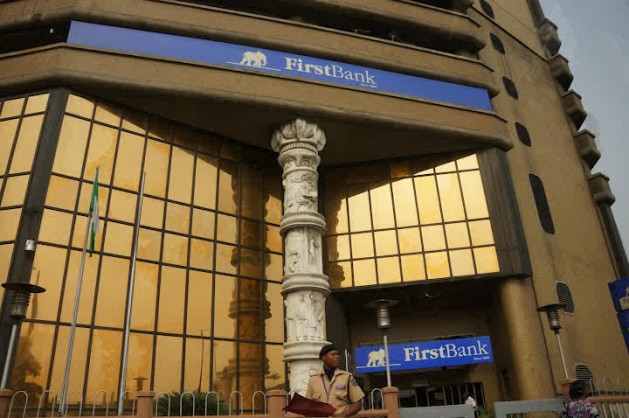Fitch Ratings has affirmed the Long-Term Issuer Default Ratings (IDR) of FBN Holdings Plc (FBNH) and First Bank of Nigeria Ltd (FBN).
A statement issued on Wednesday by the Global Rating Agency revealed that the banks’ Viability Ratings (VR) have been affirmed at ‘B-‘ and the Support Ratings at ‘5’, while the the Long-Term National Ratings have been affirmed at ‘BB+(nga)’ with the outlooks negative.
FBN Holdings is the non-operating holding company which owns FBN. Its ratings are aligned with those of FBN, its main operating subsidiary.
Fitch said FBN’s ratings are driven by its standalone creditworthiness. Reducing the group’s dependence on contributions from FBN is a medium-term target.
Currently, FBN generates around 90% of group revenues, but the objective is to increase contributions from other subsidiaries over time. FBN represents around 95% of consolidated group assets.
FBN is one of Nigeria’s largest banks, with shares of 14% and 17% of banking sector loans and deposits, respectively.
Fitch noted that FBNH has a strong franchise but its asset quality is troubled and capital levels are not commensurate with risk, in its view, reflecting high impaired loans. In the past, the group’s business model was reliant on large, often oil-related, corporate lending. Risk-control deficiencies are being addressed by new management.
Gross loans represent slightly below half of FBNH’s balance sheet. Around 40% of gross loans are extended to the oil and gas sectors, many of which have been restructured.
The rating agency views that restructuring efforts made to align debt servicing schedules with projected cash flows appear reasonable and the performance of restructured loans appears to be holding up well.
It added that loan loss reserve coverage reached 52% of impaired loans at end-September 2017, low compared with the average for large Nigerian banks peers (around 90%). Unreserved impaired loans represented 36% of Fitch Core Capital (FCC). FBNH’s capital ratios are low compared with peers and capital weakness has a high influence on the ratings.
FBNH’s margins are in line with peer averages and cost/income ratios are reasonable, considering the bank’s large branch network, it said, adding that FBN’s ability to generate revenues at pre-impairment operating level is strong, but high impairment charges have impacted earnings and profitability in 2016 and 2017.
The structure of FBNH’s funding base is credit positive. Stable customer deposits, largely held at FBN and demonstrating considerable stability, represent around two-thirds of FBNH’s total deposits. FBNH’s funding costs are lower than peers, reflecting FBN’s strong retail franchise. Local currency liquidity ratios are consistently well above minimum regulatory limits, the rating firm stated.
Foreign currency(FC)-denominated borrowings, which represent around 5% of total funding, mainly comprise two Eurobond issues, maturing in August 2020 and July 2021.
It said access to international capital markets can be unsteady for Nigerian banks, exposing them to refinancing risks, but international banks continued to lend to FBN throughout 2016 when several Nigerian banks experienced tight FC liquidity positions. This is an indication of market confidence in the group which we view positively.
The Negative Outlook reflects pressure on capital arising from a still large amount of unreserved impaired loans, the rating agency headquartered in New York said.
Commenting further, Fitch said FBNH’s and FBN’s National Ratings reflect their creditworthiness relative to the country’s best credit and relative to peers operating in Nigeria.
In its report, Fitch said it believes that sovereign support to Nigerian banks cannot be relied on given Nigeria’s (B+/Negative) weak ability to provide support, particularly in FC.
In addition, there are no clear messages from the authorities regarding their willingness to support the banking system. Therefore, the Support Rating Floor of all Nigerian banks is ‘No Floor’ and all Support Ratings are ‘5’.
“This reflects our view that senior creditors cannot rely on receiving full and timely extraordinary support from the Nigerian sovereign if any of the banks become non-viable,” it said.
The subordinated debt issued by FBN Finance B.V., a special purpose company established by the group for the purpose of debt issuance, is rated one notch below FBN’s VR. Recoveries on the notes in the event of default are considered to be below average, as evidenced by a Recovery Rating (RR) of ‘RR5’.













